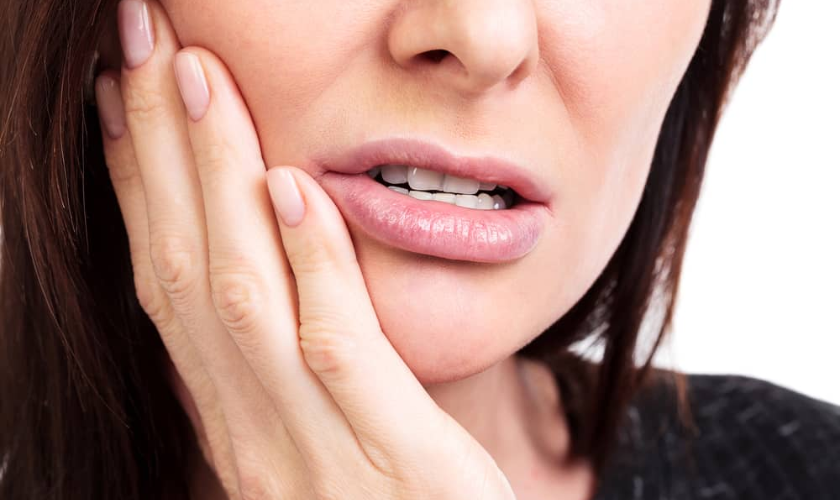
Dental emergencies can be distressing, but knowing how to manage them until you see your dentist is crucial for your oral health. Whether it's a sudden toothache, a broken tooth, or any unexpected oral discomfort, taking immediate action can make a significant difference in preventing further complications. In this guide, we'll explore various dental emergencies and provide practical tips to alleviate pain and minimize damage before your dental appointment.
Toothache Troubles
Toothache is a painful dental emergency. The pain can be intense, making it challenging to focus on anything else. However, a few simple steps can help you find relief temporarily.
Rinse and Floss
Rinse your mouth with warm water and remove the debris with the dental floss. This debris can cause irritation so removal is important. A piece of food can be the cause of severe pain.
Over-the-Counter Pain Relief
Consider taking over-the-counter pain medication, following the recommended dosage. Non-prescription pain relievers such as acetaminophen or ibuprofen can help alleviate the discomfort until you can see your dentist.
Apply a Cold Compress
If your toothache is accompanied by swelling, applying a cold compress to the affected area can help reduce inflammation and numb the pain.
Coping With Broken Or Chipped Teeth
A broken or chipped tooth can be a frightening experience. Whether due to an accident or biting into something hard, it requires prompt attention.
Save the Pieces
If possible, gather any broken pieces of the tooth. Perform warm water rinsing and keep them in a clean container. Your dentist may be able to repair or reattach the pieces.
Temporary Dental Cement
For minor chips, you can use over-the-counter dental cement to cover the affected area temporarily. This can help protect the tooth until you see your dentist.
Avoiding Extreme Temperatures
Be cautious with hot or cold foods and beverages to prevent further damage or sensitivity. Stick to room-temperature items to minimize pain.
Dealing with Knocked-Out Teeth
A knocked-out tooth is a dental emergency that requires immediate attention. Quick action can sometimes save the tooth.
Handle the Tooth Carefully
Pick up the tooth by the crown (the top part), avoiding touching the roots. Rinse it gently with water if it's dirty, but do not scrub or remove any attached tissue fragments.
Reinsert the Tooth
Put the tooth in the socket carefully. Hold it by gently biting down on a piece of clean cloth. If its not possible, keep the tooth moist.
Store the Tooth Properly
Place the tooth in a container of milk or your saliva. The goal is to keep the tooth moist until you can reach your dentist. Time is crucial in saving a knocked-out tooth.
Managing Lost Dental Fillings or Crowns
Losing a dental filling or crown can expose sensitive areas of your tooth, leading to discomfort. While waiting for professional help, you can take certain measures.
Dental Wax or Temporary Filling
Temporary dental wax or over-the-counter temporary filling material can be used to cover the exposed area. This helps protect the sensitive tooth until your dentist can replace the filling or crown.
Avoid Sticky or Hard Foods
Stick to a soft diet to prevent further damage to the exposed tooth. Avoid sticky or hard foods that may worsen the situation.
Schedule an Appointment
Contact your dentist promptly to schedule an appointment for a permanent solution. Lost fillings or crowns should be addressed promptly to avoid complications.
Recognizing Signs of Infection
Sometimes, dental emergencies can be accompanied by signs of infection, such as swelling, pus, or a foul taste in the mouth. In such cases, it's crucial to take immediate action.
Warm Saltwater Rinse
Rinse your mouth with a warm saltwater solution to help reduce inflammation and cleanse the affected area. Mix a teaspoon of salt in a glass of warm water.
Over-the-Counter Antibacterial Gel
Applying over-the-counter antibacterial gel to the affected area can help control infection temporarily. However, this is not a substitute for professional dental care.
Prompt Dental Attention:
If you suspect an infection, seek dental attention promptly. Infections can spread rapidly and may require antibiotics for effective treatment.
Final Thoughts
While these tips can provide temporary relief, it's crucial to remember that they are not substitutes for professional dental care. Dental emergencies require prompt attention from a qualified dentist to address the root cause and prevent further complications.
Furthermore, although home remedies can be effective in managing pain and minimizing damage, they should not replace regular dental check-ups and preventive care. Routine dental visits can help identify potential issues before they escalate into emergencies.
However, it's important to note that these suggestions are general guidelines and may not be suitable for every situation. If you have specific concerns or doubts, consult with your dentist for personalized advice.
Being prepared and knowing how to handle dental emergencies can make a significant difference in preserving your oral health. By taking quick and appropriate action, you can mitigate discomfort and protect your teeth until you can see your dentist for a thorough examination and proper treatment.
